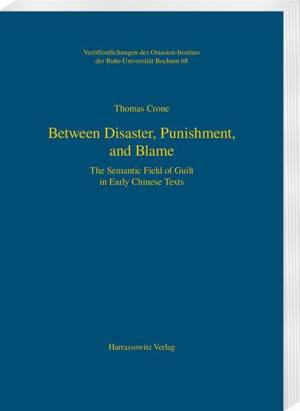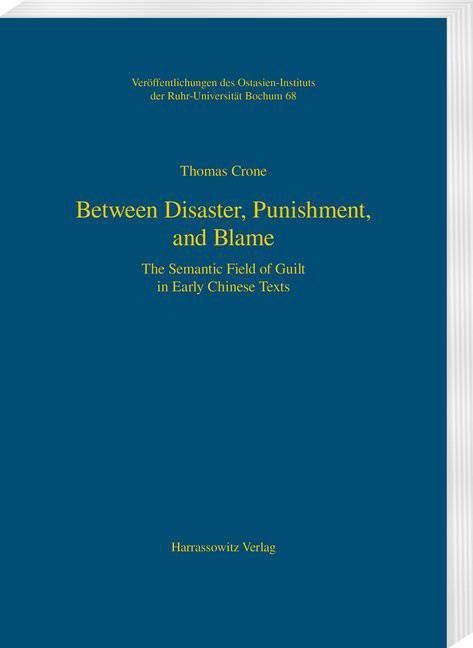
- Afhalen na 1 uur in een winkel met voorraad
- Gratis thuislevering in België vanaf € 30
- Ruim aanbod met 7 miljoen producten
- Afhalen na 1 uur in een winkel met voorraad
- Gratis thuislevering in België vanaf € 30
- Ruim aanbod met 7 miljoen producten
Zoeken
Between Disaster, Punishment, and Blame
The Semantic Field of Guilt in Early Chinese Texts
Thomas Crone
Paperback | Engels | Veröffentlichungen des Ostasien-Instituts der Ruhr-Universität, Bochum | nr. 68
€ 139,45
+ 278 punten
Omschrijving
The concept of having done something wrong is an integral part of normative thinking and thus a human universal. With regard to the early Chinese world of ideas and the resulting Confucian value system, consensus has it that the normative forces of "shame" have played a particularly strong role in the conceptualization and assessments of wrongdoings. This study aims to broaden our understanding of these processes by examining a group of synonyms associated with different states of "guilt" (i.e. the fact of having committed something wrong), in the course of their historical development during the pre-Qin period (appr. 1250-221 BCE). By outlining the synchronic conceptual differences and diachronic changes of these synonyms and framing them in their sociopolitical context, this attempts to relate the early history of a concept that has so far received little scholarly attention. The results of this study offer many surprises and show overall that the concept of guilt in early Chinese texts is much more nuanced than previously assumed. They provide impressive evidence of the emergence and growth of several expert discourses on the subject of guilt, thus challenging the notion of early China as a representative of a "shame culture."
Specificaties
Betrokkenen
- Auteur(s):
- Uitgeverij:
Inhoud
- Aantal bladzijden:
- 190
- Taal:
- Engels
- Reeks:
- Reeksnummer:
- nr. 68
Eigenschappen
- Productcode (EAN):
- 9783447113601
- Verschijningsdatum:
- 29/04/2020
- Uitvoering:
- Paperback
- Formaat:
- Trade paperback (VS)
- Afmetingen:
- 170 mm x 239 mm
- Gewicht:
- 408 g

Alleen bij Standaard Boekhandel
+ 278 punten op je klantenkaart van Standaard Boekhandel
Beoordelingen
We publiceren alleen reviews die voldoen aan de voorwaarden voor reviews. Bekijk onze voorwaarden voor reviews.







